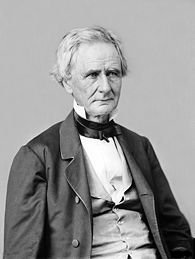From ClimateWire via the New York Times:
Global carbon dioxide emissions offsetting markets are fast losing their luster in the minds of investors, both in the United States and abroad.As governments around the world delay climate change legislation, offset project developers and traders on Wall Street and beyond say that they are rethinking their earlier enthusiasm for carbon markets. Money on hand is now being diverted, instead, to traditional clean energy plays as market players are taking a pause, waiting for signs that greenhouse gas offset credit trading will either rebound or slowly fade into nothing.
The steep recession of 2009 started the trend. Data show that prices for nearly every variety of offsetting credit plummeted sharply in value last year, including those generated by California's Climate Action Reserve, a system that most analysts believe will be folded into any U.S. federal carbon control regime.
Failure by governments to achieve a new, solid agreement on climate change at negotiations in Copenhagen last year added to the downward spiral. But far more damaging to the long-term viability of the market is a growing perception by the investment community that the U.S., Japanese, Australian and other governments are pulling away from adopting European-style cap-and-trade markets entirely. They appear to be switching instead to carbon tax schemes or other methods to bring greenhouse gas emissions under control.
Kristel Dorion, a developer with 10 years of experience putting together offset projects under the United Nations' Clean Development Mechanism (CDM), confirms that many in her industry are quickly shifting focus elsewhere. The pullback is especially noticeable in the CDM, the world's largest offset credit generation scheme, which produces Certified Emission Reductions (CERs). The CDM was created by the Kyoto Protocol treaty and allows investors to sell CERs to companies or governments in Europe, Japan and elsewhere.
American companies are pulling out
"The ones that are pulling out are all the American-based companies," she said. "The difference is that the European Union companies still believe in the CDM. The U.S. companies still don't know what to believe in.">>>MORE
Ah, belief and belief systems, right up my alley:
I believe virtually everything I read, and I think that is what makes me more of a selective human than someone who doesn't believe anything....
-David St. Hubbins
This is Spinal Tap
Here's our carbon trader headlines chronology:
June 4, 2007
Investment Banks Flock to Booming Carbon Trade
Six months ago, Sep. 15, 2009
Carbon Trading: JPMorgan to buy EcoSecurities for $204 million (JPM; ECO.L)
Nov. 18, 2009
Carbon market clouded by uncertainty
Jan. 27, 2010
Zeitgeist: "Davos Dialog Will Downplay Carbon, Talk Up Energy And Infrastructure"
Jan. 27, 2010
Carbon Markets Are Under ‘Dark Cloud,’ Merrill Says
Jan. 29, 2010
Carbon Traders Quit Emissions Market Amid Drop in Demand (JPM)
Feb. 8, 2010
How big is the threat to carbon trading? (CAO.L)
March 1, 2010
Sorry Carbon Traders, Your Time has Come and Gone
March 1, 2010
Sorry Carbon Traders, Your Time has Come and Gone, part II: "Carbon Market Under Existing U.S. Law Not Likely, Xcel Says" (XEL)
March 3, 2010
"Hopes for $2 trillion global carbon market fade" and "Ecosecurities to shutter US office" (JPM)
Here's a June 2007 post:
The Bored Whore of Kyoto
"I don't know if climate change is caused by burning coal or sun flares or what," said the Moscow-based carbon cowboy. "And I don't really give a shit. Russia is the most energy inefficient country around, and carbon is the most volatile market ever. There's a lot of opportunity to make money."...2007 was also the year that we awarded the first Climateer: Our Hero award to Senator Simon Cameron Democrat and Republican of Pennsylvania:
...Finally for investors in rent-seeking organizations there is the real risk that the politicians will change the rules. Heed the words of Sen. Simon Cameron (R&D!-Pa.):
"The honest politician is one who when he is bought,
will stay bought."
